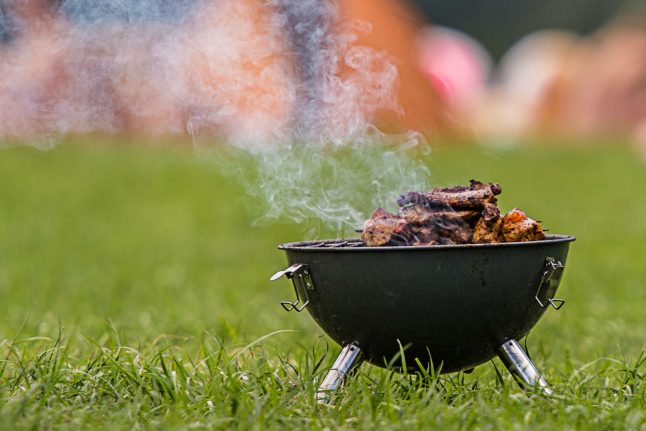German politicians are speaking out in favour of raising the VAT (Mehrwertsteuer) on meat in a bid to improve animal welfare and cut CO2 emissions.
The decision makers want to raise the tax to the standard VAT, or 19 percent, up from the current seven percent that consumers are required to pay for meat products.
“I’m in favour of raising the VAT reduction and using it for greater animal protection” said Friedrich Ostendorf, a Greens spokesman on agricultural policy.
He pointed out that there is no reason that the meat should be taxed less, while products such as oat milk are taxed the standard 19 percent VAT.
The increase was originally put forward by Germany’s Animal Welfare Association. “Parallel to the CO2 tax, we also need a meat tax,” its president Thomas Schröder said, pointing out that meat, milk and eggs only cost “a few cents” per kilo.
“Mit den Einnahmen könnte der Umbau der Ställe finanziert werden”, so der Tierschutzpräsident. Pro Kilo Fleisch, Liter Milch oder Eierkarton seien das nur wenige Cent. #Fleischsteuer pic.twitter.com/to8UhtrfG6
— ZDF heute (@ZDFheute) August 5, 2019
The increased VAT, say the politicians, would have the double advantage of reducing CO2 emissions.
In its 2016 climate protection plan, Germany's so-called 'grand coalition' – made up of Chancellor Angela Merkel's Christian Democrats and the centre-left Social Democrats – agreed in targets for the agricultural sector: by 2030, emissions should fall by 31 to 34 percent compared with 1990 levels.
'It would affect consumers'
The proposed increase comes as Germany continues to face increased scrutiny over how it treats its livestock.
In June, Germany’s top court controversially ruled that the slaughtering of male chicks – about 45 million per year – may continue in the poultry industry.
SEE ALSO: Germany allows slaughter of male chicks to continue
Rainer Spiering, the SPD's agricultural policy spokesman, also felt that a meat tax could reduce consumption but that “it would mostly affect consumers,” rather than leading to a shift in standards in the meat industry.
He added that meat producers and food retailers would also have to make a contribution to sustainable livestock farming.
Christian Democratic (CDU) agricultural politician Albert Stegemann said the “meat tax” was a “constructive” first step to changing farming practices, but that the extra funds generated by it should go back to the livestock industry directly.
“This additional income would have to be used as an animal welfare premium in order to support the livestock farmers in Germany during their restructuring,” said Stegemann.
“The road to socially sustainable livestock farming would cost billions of euros, which farmers in Germany would not be able to bear alone.
Bernhard Krüsken, General Secretary of the German Farmers' Association, spoke out against the tax on Wednesday.
“It is not the tax authorities but farmers who need funds and support for the further development of animal husbandry,” he said.
Opting for a vegetarian diet
Since 2011 meat consumption in Germany has been decreasing, with 2,000 Germans per day deciding to go vegetarian, according to supermarket group REWE.
There are a total of eight million vegetarians in the country, according to current estimates, or 10 percent of the population.
The turn to a meat-free diet has led to a slew of more affordably priced vegetarian and vegan products throughout the country, yet many consumers still complain these are priced too high, reports bento.
“Do vegetables cost too much, or meat too little?” the online newspaper asked rhetorically.
SEE ALSO: Meat consumption drops significantly as more Germans spurn the sausage



 Please whitelist us to continue reading.
Please whitelist us to continue reading.
Member comments